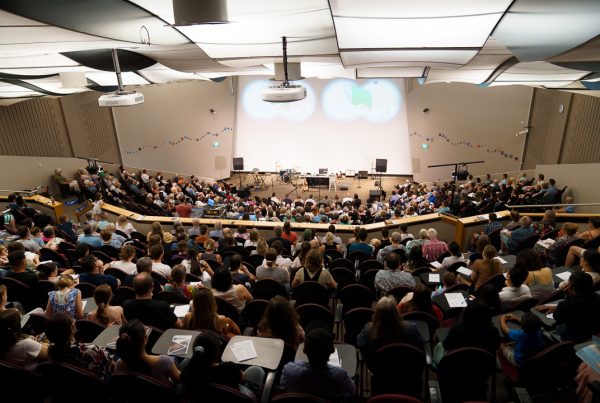21 March 2019
Who created God? Why does God kill people? What about dinosaurs? Will our pet dog be in Heaven? Will there be surfing in Heaven? Is Grandma in Heaven?
Children have some of the best questions! Their curiosity and thirst for knowledge is something so special. Many of us lose it as we get caught up in the busyness of life. We begin to act more than we question. But often a child’s questioning makes us stop and reflect ourselves. As a teacher of children’s Scripture, I’m often thrown many questions. I love that the children are grappling with the word and trying to make sense of it by crosschecking it with their pre-existing understanding of the world.
Unfortunately, poorly or unanswered questions are one of the reasons young adults claim as a contributing factor to walking away from the faith. To leave questions unanswered or brushed off with half-hearted responses communicates to our young people that we don’t value their faith journey or that we’d just prefer to finish a lesson or another task.
Here are some simple things we can do to show our children and young people that we value their questions:
Start by listening. Hear their questions and let them know it’s okay to question. In fact, it means they’re trying to come to their own personal faith… Heart knowledge, rather than just head knowledge!
Clarify. Often as adults, we can’t think of the right question to ask for the answer we want, so we need someone to probe a bit further. Kids are just learning to ask the right questions, so often it needs a conversation to figure out the question behind the question.
Take them to the Bible. It’s important that our children know that the Bible is the source of our information, so show them you getting knowledge from there. It also demonstrates that we are not the source of all wisdom ourselves and teaches them to rely on the Bible rather than us. This is particularly important as they grow older, so make it a habit early on. We are not the greatest authority in their lives!
Finally, it’s okay to say “I don’t know” and to go searching for the answer together; this is vital.
We are on the same journey as our children, and it’s an incredible witness to our children and young people when we let them know that we don’t have all of the answers. In fact, there are certainly some things that we don’t know for sure because the Bible doesn’t address them. When this happens, we can share examples of how God has worked in our lives or the lives of those around us. But ultimately, there are some things we just don’t know the answer to. At this point, our witness of relying on God regardless of unanswered questions is the key.
So … what was it about dinosaurs that you wanted to know?
Meaghan Gates
(7pm member and Children’s Ministry Trainee)





